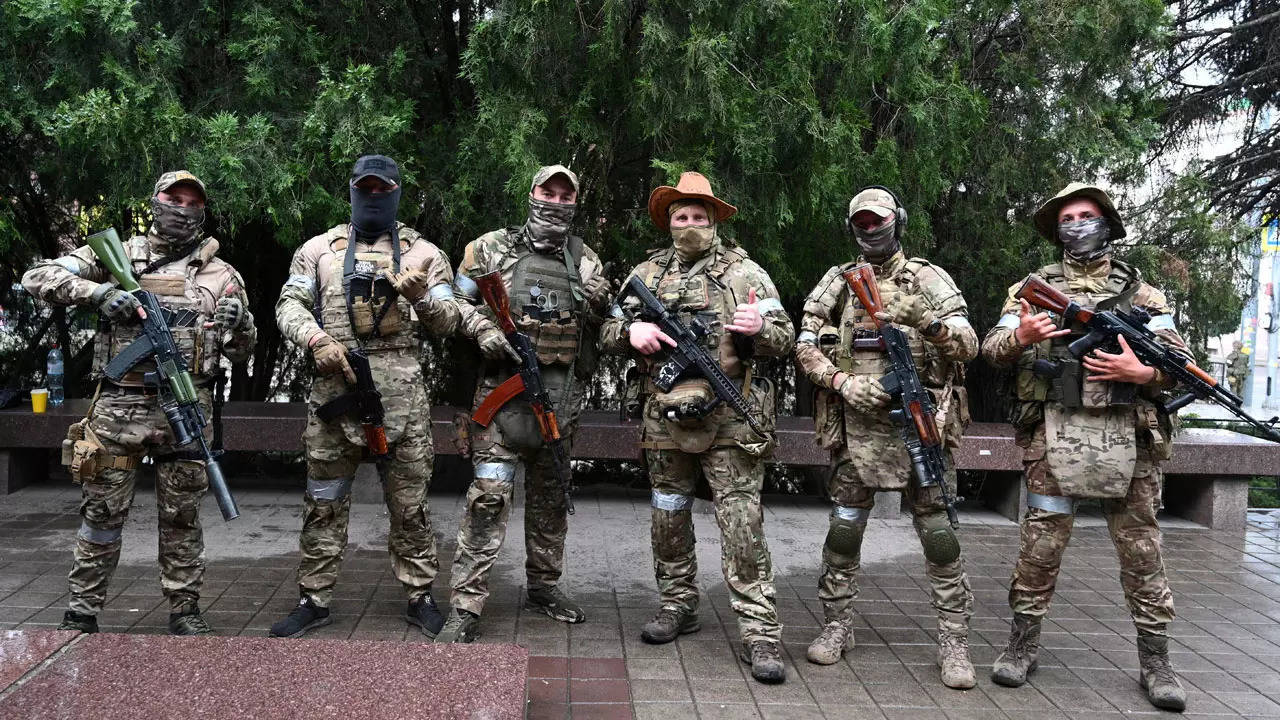[ad_1]
Kremlin has rubbished any talk of its alleged hand in the warlord’s death. But the world, and the mercenaries, fear that it was most likely the wrath of Putin, and not some unlucky coincidence, that led to the death of Prigozhin.
Days after Prigozhin’s death, Putin also ordered Wagner fighters to sign an oath of allegiance to the Russian state, according to a decree published on the Kremlin’s website.
The Russian leader wants to avoid any further conflicts with the Wagner fighters, some of whom are angry over Prigozhin’s death and believe that Putin ordered the “assassination” to punish him for the short-lived mutiny two months ago.
Putin’s introduction of a mandatory oath for employees of Wagner and other private military contractors was also a clear move to bring such groups under tighter state control.
The decree obliges anyone carrying out work on behalf of the military or supporting what Moscow calls its “special military operation” in Ukraine to swear a formal oath of allegiance to Russia.
Challenges ahead
The Wagner Group’s presence extends from the ancient battlegrounds of Syria to the deserts of sub-Saharan Africa.
They are a projection of Kremlin’s global influence and don’t shy away from using brutal force and profiting from seized mineral riches.
In Ukraine too, Wagner was seen as one of Russia’s most effective and brutal fighting forces, exacting and taking enormous casualties in the monthslong battle for the Ukrainian city of Bakhmut.
But the clout of the group was built primarily under Prigozhin’s leadership.
Observers say that Russia would likely maintain a presence in African countries, where Wagner provided security against extremist organisations like al-Qaida and the Islamic State group, by placing the mercenaries under new leadership.
Others, however, say Prigozhin built deep, personal connections that Moscow could find challenging to replace quickly.
Nathalia Dukhan, a senior investigator at The Sentry, a policy organisation based in Washington, told AP that the Kremlin would try to bring Africa closer into its orbit.
“Wagner has been a successful tool for Russia to expand its influence efficiently and brutally,” she said.
“In the midst of all the turmoil between Putin and Prigozhin, the Wagner operation in Central Africa only deepened, with increased direct involvement by the Russian government.”
High-ranking Wagner operatives have built relationships in Mali and the Central African Republic and understand the terrain, said Lou Osborn of All Eyes on Wagner, a project focusing on the group.
“They have a good reputation, which they can sell to another Russian contender. It wouldn’t be surprising if a new organization took them over,” Osborn said, noting that Russian military contractors in Ukraine, such as Redut and Convoy, have recently expressed a desire to do business in Africa.
Redut was created by the Russian Defence Ministry, which had sought to put Wagner under its control.
Following the June mutiny, Putin said the mercenaries could sign contracts with the ministry and keep serving under one of the group’s top commanders, Andrei Troshev.
Asked about the future of the Wagner Group, which now appears leaderless, the Kremlin gave a concise answer: “We don’t know”.
(With inputs from AP & Reuters)
[ad_2]
Source link


